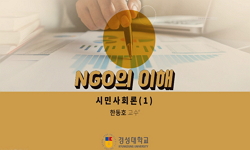`Global Administrative Law`(이하 “GAL”)라 불리는 새로운 법체계에 대한 논의가 이어지고 있다. GAL 개념 정립을 주장하는 사람들은 개인 또는 회사에게 영향을 미치는 국제기구의 의사결정은 법...
http://chineseinput.net/에서 pinyin(병음)방식으로 중국어를 변환할 수 있습니다.
변환된 중국어를 복사하여 사용하시면 됩니다.
- 中文 을 입력하시려면 zhongwen을 입력하시고 space를누르시면됩니다.
- 北京 을 입력하시려면 beijing을 입력하시고 space를 누르시면 됩니다.
https://www.riss.kr/link?id=A100463169
- 저자
- 발행기관
- 학술지명
- 권호사항
-
발행연도
2015
-
작성언어
Korean
- 주제어
-
등재정보
KCI등재
-
자료형태
학술저널
- 발행기관 URL
-
수록면
79-108(30쪽)
-
KCI 피인용횟수
4
- 제공처
-
0
상세조회 -
0
다운로드
부가정보
국문 초록 (Abstract)
`Global Administrative Law`(이하 “GAL”)라 불리는 새로운 법체계에 대한 논의가 이어지고 있다. GAL 개념 정립을 주장하는 사람들은 개인 또는 회사에게 영향을 미치는 국제기구의 의사결정은 법체계에 의해 규율되어야 하는데 이 법체계로 GAL 개념 도입을 주장하고 있다. 더구나 국제기구 또는 외교회의를 통한 국제입법 시 개인 또는 NGO도 그 입법에 참여할 수 있는 권리가 GAL을 통해 보장되어야 함을 언급하고 있다. 이러한 주장은 전통적인 국제법의 연원인 조약 또는 국제관습법이 아닌 국제기구의 의사결정이 실제적으로 발휘하고 있는 영향력을 강조하고, 국제입법의 주체를 개인 또는 NGO로 확장한다는 차원에서 전통적인 국제법 개념에 대한 하나의 도전이 되고 있다.
특히 GAL 개념의 지지자들은 GAL의 연원으로 국내법 또한 인정하여 국내 행정법의 기본원칙들이 국제기구의 의사결정을 규율해야 한다는 주장을 하고 있다. 즉, 이들은 현재 국제기구의 의사결정이 그 의사결정의 영향을 받을 수 있는 개인 또는 회사의 참여 없이 비민주적으로 이루어지고 있으며, 그 의사결정으로 인하여 개인 또는 회사의 이익이 보장받을 수 없는 위험이 존재하고 있다고 보고 있다. 비록 GAL 개념을 지지하는 사람들의 독특한 시각이 존중될 가치가 있다 하더라도 이들이 GAL이라는 법체계의 탄생을 논증하는데 있어 국제기구의 의사결정 그리고 국제입법의 과정과 관련하여 기존 국제법의 이론을 정확히 이해하지 못하고 있는 것에 대해서는 아쉬움을 금할 수 없다. 또한 이들은 GAL이라는 제3의 법체계의 정립과 관련하여 그 법체계의 주체, 연원, 적용 영역 또는 대상 등을 정확히 정의하지 못하고 있다.
GAL 개념을 제시하는 것은 국제적인 차원에서 개인 또는 NGO의 영향력을 법적으로 확대하기 위한 시도에 불과하다. 하지만 국제기구의 의사결정 절차를 규율하는 가장 좋은 방법은 관련 국제기구의 설립조약을 개정하거나 실제로 의사결정을 하는 국제기구의 관련 기관이 자신의 의사결정 과정을 규율하는 확립된 지침 또는 관행을 수립하는 것이다. 그리고 개인 또는 NGO의 의사는 현재의 국제입법 과정에서는 국가에 의해 대표되어 나타날 수밖에 없다. 물론 국내 시민사회의 영향력이 관련 국가들의 외교관들이 교섭을 시작하는데 있어 영향을 끼칠 수 있는 것은 분명하지만 이러한 영향력 행사를 법적으로 보장하는 것은 국제입법 과정을 복잡하게 할 뿐이다. 따라서 현재의 국제법체계에 GAL 개념을 도입할 필요성을 찾기는 어렵다고 할 수 있을 것이다.
다국어 초록 (Multilingual Abstract)
It is debatable whether a new legal system called `Global Administrative Law`(hereafter referred to as “GAL”) exists. Some argue that the decision-making of international organization, which has an impact on individuals or companies, should be reg...
It is debatable whether a new legal system called `Global Administrative Law`(hereafter referred to as “GAL”) exists. Some argue that the decision-making of international organization, which has an impact on individuals or companies, should be regulated by a legal system, and therefore insist upon the need of GAL Moreover, they think that individuals or NGOs should have a right (conferred to y the concept of GAL) to participation in international law-making through international organizations or diplomatic conferences. This contention is a challenge to the present concepts of international law because it means that the decision-making of international organizations would exert more influence than the main sources of international law (treaties and customary international law), and that individuals (or NGOs) would be regarded as the subjects of international law, especially in international law-making.
Advocates for the concept of GAL contend that domestic law can be the sources of GAL, and that some principles of domestic administrative law should govern the decision-making of international organizations. The reason for the contention are that the decision-making process of international organizations might be undemocratic without any participations of individuals or companies, and that the interests of individuals or companies would then be put at risk. Although their support for the concept of GAL should be respected, it is regrettable that they do not precisely understand the theories of international law regarding the decision-making of international organizations and international law-making. In addition, they fail to define the subjects and sources of GAL or the areas that can be regulated by the GAL system.
The hidden intent for introducing the system of GAL is that individuals or NGOs want to extend their influence on the decision-making process of international organizations. However, the best way to govern the decision-making of an international organization is to amend the constituent documents of the international organization or to establish guidelines or practices by a decision-making organ within the international organization. In addition, the intent of individuals or NGO should be represented by the will of a State. Although civil society has considerable influence on the diplomatic negotiations, an NGO`s legal right to participation in the negotiations would make international law-making exceedingly complicated. It is, therefore, unnecessary for contemporary international law to accept the establishment of the GAL system.
목차 (Table of Contents)
- Ⅰ. 서론
- Ⅱ. GAL 개념 일반
- Ⅲ. ‘초국가적 행정 영역’ 의 존재와 국제법 및 국제기구의 의사결정
- Ⅳ. GAL 개념을 필요로 하는 다섯 가지 영역의 유형화 비판
- Ⅴ. GAL이라는 `법`체계의 정립?
- Ⅰ. 서론
- Ⅱ. GAL 개념 일반
- Ⅲ. ‘초국가적 행정 영역’ 의 존재와 국제법 및 국제기구의 의사결정
- Ⅳ. GAL 개념을 필요로 하는 다섯 가지 영역의 유형화 비판
- Ⅴ. GAL이라는 `법`체계의 정립?
- Ⅵ. GAL 개념 도입에 대하여 국제법 이론 및 실례에 기초한 반론
- Ⅶ. 결론
- 국문초록
- ABSTRACT
참고문헌 (Reference)
1 성재호, "국제기구와 국제법" 한울아카데미 15-17, 2003
2 "http://www.bis.org/publ/bcbs264.pdf"
3 "Visit"
4 WTO Appellate Body, "United States – Import Prohibition of Certain Shrimp and Shrimp Products"
5 Bruno Simma, "The ‘International Community’: Facing the Challenge of Globalization" 9 : 1998
6 Kenneth Anderson, "The Ottawa Convention Banning Landmines, the Role of International Non- governmental Organizations and the Idea of International Civil Society" 11 : 2000
7 Mark Pallis, "The Operation of UNHCR’s Accountability Mechanisms" 37 : 888-898, 2005
8 Alan Boyle, "The Making of International Law" Oxford University Press 2007
9 Benedict Kingsbury, "The Emergence of Global Administrative Law" 68 : 2005
10 Benedict Kingsbury, "The Concept of ‘Law’ in Global Administrative Law" 20 : 25-, 2009
1 성재호, "국제기구와 국제법" 한울아카데미 15-17, 2003
2 "http://www.bis.org/publ/bcbs264.pdf"
3 "Visit"
4 WTO Appellate Body, "United States – Import Prohibition of Certain Shrimp and Shrimp Products"
5 Bruno Simma, "The ‘International Community’: Facing the Challenge of Globalization" 9 : 1998
6 Kenneth Anderson, "The Ottawa Convention Banning Landmines, the Role of International Non- governmental Organizations and the Idea of International Civil Society" 11 : 2000
7 Mark Pallis, "The Operation of UNHCR’s Accountability Mechanisms" 37 : 888-898, 2005
8 Alan Boyle, "The Making of International Law" Oxford University Press 2007
9 Benedict Kingsbury, "The Emergence of Global Administrative Law" 68 : 2005
10 Benedict Kingsbury, "The Concept of ‘Law’ in Global Administrative Law" 20 : 25-, 2009
11 "Targeted Sanctions: Listing/De-listing and Due Process" 19-, 2007
12 "Southern Bluefin Tuna (New Zealand-Japan, Australia-Japan) (Washington, D.C., 4 August 2000), UNRIAA, Volume XXIII"
13 C. F. Amerasinghe, "Principles of the Institutional Law of International Organizations" Cambridge University Press 2005
14 Gus Van Harten, "Investment Treaty Arbitration as a Species of Global Administrative Law" 17 : 122-, 2006
15 Nico Krisch, "Introduction: Global Governance and Global Administrative Law in the International Legal Order" 17 : 2006
16 José E. Alvarez, "International Organizations as Law-makers" Oxford University Press 2005
17 Stefano Battini, "International Organizations and Private Subjects: A Move Toward A Global Administrative Law?" IILJ 2005
18 David Zaring, "International Law by Other Means: The Twilight Existence of International Financial Regulatory Organizations" 33 : 289-, 1998
19 B. S. Chimni, "International Institutions Today: An Imperial Global State in the Making" 15 : 2004
20 David Zaring, "Informal Procedure, Hard and Soft, in International Administration" 5 : 555-, 2005
21 "ILOAT"
22 Andrew T. Guzman, "How International Law Works : A Rational Choice Theory" Oxford University Press 183-209, 2008
23 Daniel C. Esty, "Good Governance at the Supranational Scale: Globalizing Administrative Law" 115 : 2006
24 Gunther Teubner, "Global Law without a State" Dartmouth Publishing Company Limited 4-, 1997
25 Michael S. Barr, "Global Administrative Law: The View from Basel" 17 : 15-18, 2006
26 Sabino Cassese, "Global Administrative Law - Cases, Materials, Issues" IRPA & IILJ 145-149, 2008
27 Jared Schott, "Chapter VII as Exception: Security Council Action and the Regulative Ideal of Emergency" 6 (6): 72-, 2007
28 "Article IX (Consultations, Cooperation and Fact-finding) of the CWC"
29 Jan Klabbers, "An Introduction to International Institutional Law" Cambridge University Press 6-12, 2009
30 Sabino Cassese, "Administrative Law without the State? The Challenge of Global Regulation" 37 : 666-668, 2005
동일학술지(권/호) 다른 논문
-
나고야 의정서의 글로벌 다자 이익공유체제(GMBSM)의 해석과 적용에 관한 고찰
- 대한국제법학회
- 김기현(KIM Kihyeon)
- 2015
- KCI등재
-
국제법상 국제연합에 의한 한국의 독도 영토주권 승인의 효과
- 대한국제법학회
- 김명기(KIM Myungki)
- 2015
- KCI등재
-
- 대한국제법학회
- 오승진(OH Seungjin)
- 2015
- KCI등재
-
행정부 확인서(Executive Certificate)에 관한 영국법원의 관행 연구
- 대한국제법학회
- 임예준(RIM Yejoon)
- 2015
- KCI등재
분석정보
인용정보 인용지수 설명보기
학술지 이력
| 연월일 | 이력구분 | 이력상세 | 등재구분 |
|---|---|---|---|
| 2022 | 평가예정 | 재인증평가 신청대상 (재인증) | |
| 2019-01-01 | 평가 | 등재학술지 선정 (계속평가) |  |
| 2018-12-01 | 평가 | 등재후보로 하락 (계속평가) |  |
| 2015-01-01 | 평가 | 등재학술지 유지 (등재유지) |  |
| 2011-01-01 | 평가 | 등재학술지 유지 (등재유지) |  |
| 2009-01-01 | 평가 | 등재학술지 유지 (등재유지) |  |
| 2007-01-01 | 평가 | 등재학술지 유지 (등재유지) |  |
| 2004-01-01 | 평가 | 등재학술지 선정 (등재후보2차) |  |
| 2003-01-01 | 평가 | 등재후보 1차 PASS (등재후보1차) |  |
| 2002-01-01 | 평가 | 등재후보학술지 유지 (등재후보1차) |  |
| 1999-07-01 | 평가 | 등재후보학술지 선정 (신규평가) |  |
학술지 인용정보
| 기준연도 | WOS-KCI 통합IF(2년) | KCIF(2년) | KCIF(3년) |
|---|---|---|---|
| 2016 | 0.68 | 0.68 | 0.67 |
| KCIF(4년) | KCIF(5년) | 중심성지수(3년) | 즉시성지수 |
| 0.66 | 0.62 | 0.869 | 0.25 |





 DBpia
DBpia






